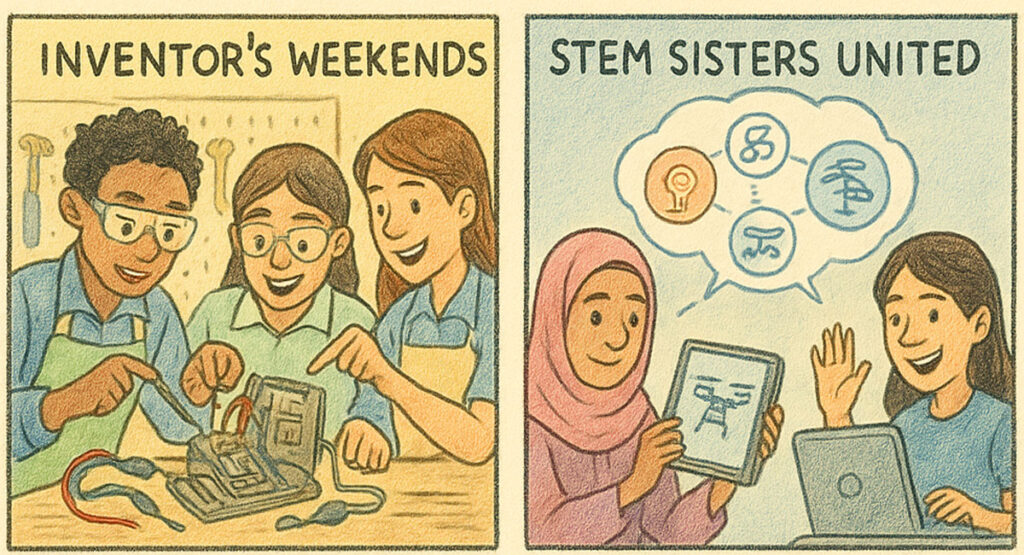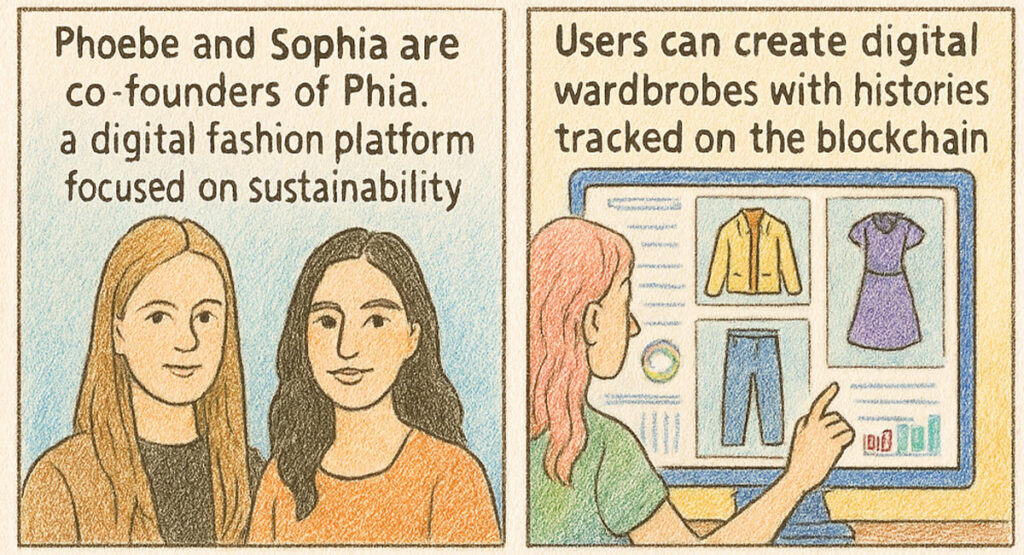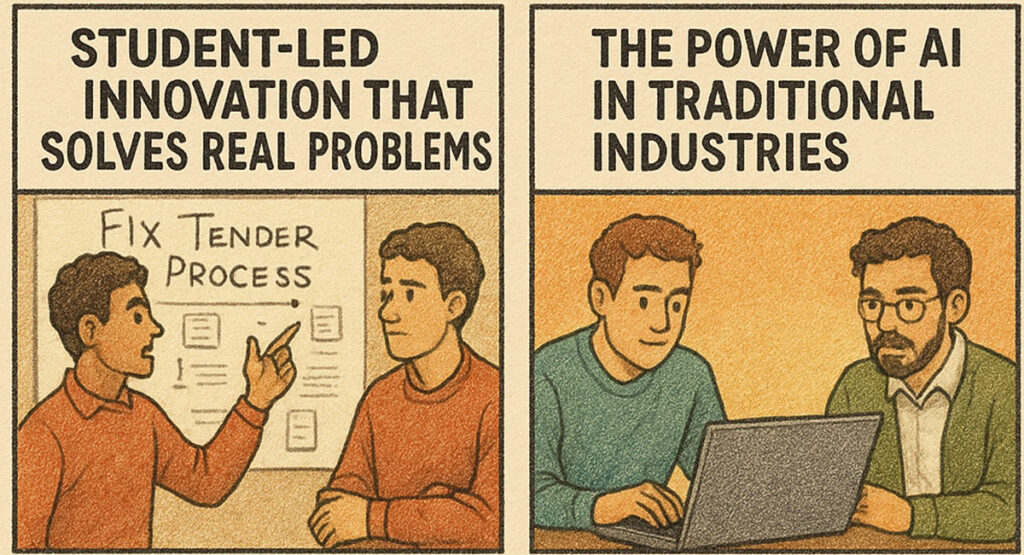At the vibrant age of 19, when many are still navigating the threshold of adulthood, Scott Hiett was already leaving footprints on the entrepreneurial landscape. Hailing from the United Kingdom, Scott wasn’t born with a silver spoon, but rather with a fire in his mind—a spark that turned into a blaze of innovation. His name was etched into the 2025 GYES “25 Under 25” list, a prestigious recognition reserved for the world’s brightest young changemakers. But what made Scott stand out in a sea of ambitious youth? It was his fearless commitment to solve problems, no matter how big they seemed.
Scott’s journey began not with a grand office or seed funding, but in a small corner of his bedroom. With nothing more than a laptop, a head full of ideas, and an unshakable belief in the power of technology, he launched a startup that spoke directly to the heart of modern youth—a platform designed to empower young creators and freelancers across Europe to monetize their talents and turn their side hustles into full-scale businesses.
What made his business exceptional wasn’t just the idea—it was how he executed it. His startup wasn’t a generic gig platform. It was a community. A mentorship hub. A launching pad. Scott made sure that even the most overlooked artist or coder in a village had a chance to be seen, hired, and celebrated. He believed that economic empowerment could be unlocked not just by big corporations, but by everyday people supporting each other through skill-sharing and micro-opportunities.
Within a year of launching, the platform grew from a dozen users to over 50,000 registered talents, spanning creatives, marketers, video editors, writers, and AI builders. With carefully crafted design, intuitive UX, and personalized onboarding systems, Scott broke down the barrier that usually made tech feel intimidating. He used automation and AI-driven discovery to connect clients with freelancers not based on how much they charged, but how much value they could offer.
What started as a solo project quickly turned into a movement.
Scott was more than a founder—he was a leader who listened. He held weekly “Open Zoom Cafés” with users, discussing their challenges and implementing their feedback in real time. When someone suggested that international students were struggling to find freelance gigs due to visa constraints, Scott worked tirelessly to introduce legal advisory resources through partnerships with immigration experts.
Behind his soft-spoken demeanor was a sharp visionary who never lost sight of why he started: to prove that age is not a limitation, and that innovation doesn’t wait for permission.
His inclusion in the GYES 25 Under 25 wasn’t just a trophy—it was a loud signal to the world that young people are not just the future; they are the present. It also fueled Scott with renewed vigor. He began mentoring other young founders, often stating, “The biggest startup idea might be waiting inside the mind of someone too scared to try.”
He didn’t raise millions from investors. Instead, he raised confidence in thousands of young people who believed, for the first time, that their dreams were possible.
Scott Hiett’s story reminds us all that entrepreneurship is not about age, capital, or titles—it’s about heart, resilience, and the courage to lead when no one asks you to. From a teenage dreamer in the UK to a recognized global innovator, Scott’s journey continues to light a path for all those bold enough to build something bigger than themselves.
Scott Hiett’s story is more than a tale of teenage entrepreneurship—it’s a revolution of mindset. His journey holds layers of inspiration that ripple far beyond a single platform or business model. Here are more inspiring and powerful angles from Scott’s evolving mission that can spark ideas and uplift future innovators:
He turned rejection into fuel.
Before launching his successful platform, Scott pitched early versions of his idea to local accelerators and university incubators—many of which turned him down due to his age and “lack of experience.” But Scott never allowed a closed door to define his path. Instead, he turned to online forums, bootstrapped with pocket money, and taught himself product development through late-night YouTube sessions and coding tutorials. His determination taught an entire generation that rejection isn’t the end—it’s just redirection.
He made failure his teacher, not his fear.
In his first few months, Scott launched two beta versions of his app—both failed to gain traction. But he didn’t hide the failure. Instead, he shared it openly with his followers, encouraging other young people to stop chasing perfection and start embracing progress. He once said, “Version 1 is better than version none.” That single line became a mantra for student entrepreneurs who had been waiting on the sidelines, frozen by the pressure of doing things perfectly.
He built a company culture before he built a company.
Even when Scott had only three interns helping him, he insisted on a weekly gratitude session where the team would celebrate even the smallest wins—like fixing a bug or helping a user complete a profile. This tiny habit created a powerful culture of kindness, encouragement, and shared growth, which later became the backbone of his team’s long-term loyalty and high-impact output.
He made social impact a part of profit.
Scott didn’t just want to make money—he wanted to make meaning. From the beginning, he pledged that a percentage of every platform transaction would go into a “Skill Fund”—a micro-scholarship initiative that helped underprivileged youth in rural UK and Europe get access to internet tools, courses, and career mentoring. He didn’t wait to become rich to give back—he built giving into his business from day one.
He inspired global conversations on youth empowerment.
Invited to speak at international panels and digital summits, Scott never came to impress—he came to challenge. At one major youth tech forum, he posed a question that went viral: “If young people are good enough to build your social media trends, why aren’t they sitting at your boardroom tables?” That single quote turned into a movement, sparking conversations in schools, corporations, and policy circles about integrating youth in decision-making processes.
He humanized tech.
Unlike many digital founders who spoke in jargon, Scott had a gift for speaking human. He didn’t talk about “algorithms” or “data optimization”—he talked about helping someone in a small town get their first paycheck by editing a video, or a student in Italy finding purpose by designing logos after class. His platform wasn’t just a tech product—it was a mirror reflecting the dreams and talents of everyday people who just needed a little push.
He turned loneliness into leadership.
Behind his achievements was a quiet truth: building a business as a teenager can feel isolating. While friends partied and traveled, Scott spent nights debugging code and replying to user emails. But instead of feeling sorry, he leaned into the solitude and emerged stronger, turning his own sense of isolation into empathy for others. He knew what it meant to feel unseen—and so he built a platform that made people feel deeply seen.
He redefined success for a new generation.
Scott didn’t measure his worth by likes, followers, or press mentions. He defined success as “waking up excited, knowing someone out there is using what you built to change their life.” This mindset liberated many young people from the toxic cycle of comparison and helped them redefine their own entrepreneurial goals—not based on fame, but on fulfillment.
Scott Hiett became more than a founder. He became a symbol of what’s possible when courage meets compassion, and when action replaces doubt. His story is still being written—but already, it is inspiring thousands to stop waiting for the perfect moment, and instead start.




















